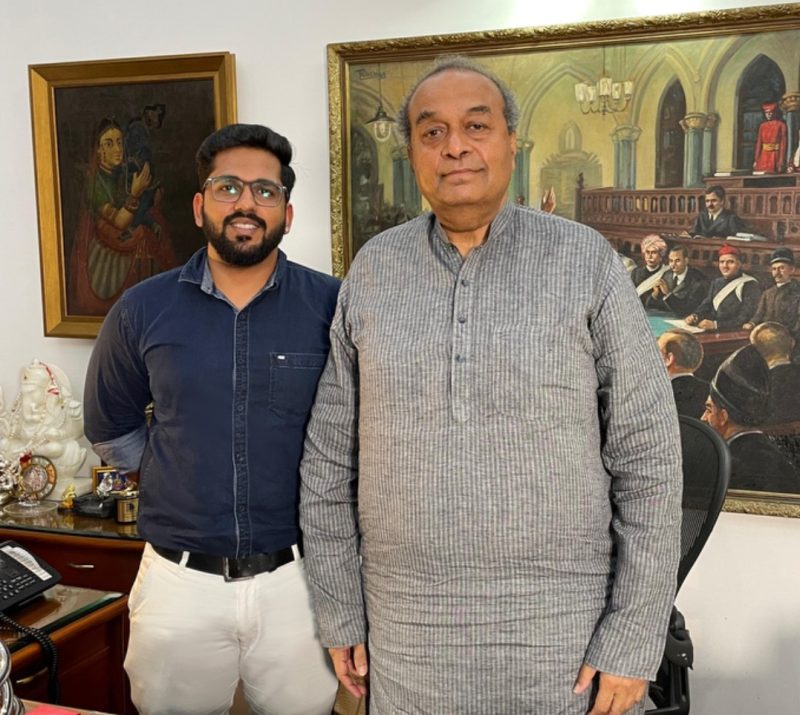In the vast expanse of India’s legal world, few figures have left as indelible a mark as Mukul Rohatgi. His name is synonymous with sharp legal acumen, a deep understanding of constitutional law, and a career punctuated by historic legal victories. Recently, I had the extraordinary privilege of meeting him, and the experience was nothing short of transformative. As we delved into the nuances of the Indian legal landscape, his insights revealed not just the evolution of law but the profound responsibility that comes with practicing it at the highest levels.

For those unfamiliar, Mukul Rohatgi has served as both the Attorney General of India, from 2014 to 2017, and as an Additional Solicitor General. Over the decades, he has built a legacy as one of India’s most distinguished legal minds. His career spans a wide array of high-profile cases, many of which have had far-reaching consequences on India’s legal and social fabric. As the Attorney General, he was the chief legal advisor to the government, a role that positioned him at the heart of some of the country’s most significant legal battles.
My meeting with Mukul Rohatgi was arranged through a mutual connection, and from the outset, it was clear that this would not be a mere casual conversation. Despite his towering achievements, he exuded humility and a genuine willingness to share his perspectives. Our discussion ranged from the intricacies of landmark cases to broader reflections on the state of India’s legal system.
Key Takeaways from the Conversation
1. The Evolution of Legal Practices
One of the most fascinating parts of our discussion centered around how legal practices in India have evolved. Mr. Rohatgi spoke about the transformation of the legal system—from a more rigid, formalized structure to one that is increasingly dynamic and adaptive to modern challenges. Judicial reforms, changes in procedural laws, and an increasing focus on human rights have significantly influenced this evolution. He emphasized the importance of these changes in ensuring that the legal system remains responsive to societal needs and global legal trends.
2. Landmark Cases and Their Impact
A particularly illuminating aspect of our conversation was Mr. Rohatgi’s recounting of his involvement in landmark cases. He shared behind-the-scenes details of these pivotal moments in Indian jurisprudence, offering unique insights into the challenges, strategies, and outcomes of these legal battles. These cases, some of which have set new precedents, not only shaped legal doctrine but also left a lasting imprint on Indian society, reinforcing the importance of law as a tool for societal progress.
3. The Future of Legal Education
We also discussed the future of legal education, a topic that Mr. Rohatgi is passionate about. He underscored the need for a curriculum that is more practical and globally oriented, preparing students for the complexities of modern legal practice. The former Attorney General advocated for experiential learning, where students engage directly with real-world cases, and for an interdisciplinary approach that bridges the gap between law and other fields. His vision for legal education is one that empowers future generations of lawyers to be more adaptable, critical thinkers, and, above all, effective advocates for justice.
Meeting Mukul Rohatgi was not just an opportunity to gain insights from a leading legal luminary, but also a chance to reflect on the broader landscape of law in India. His thoughts on the past, present, and future of legal practice were enlightening and have left me with a deeper appreciation for the intricacies of the profession. The conversation reinforced the idea that law is not just about rules and regulations but about shaping society, safeguarding rights, and driving progress.
For anyone passionate about the law, such an encounter serves as a reminder of the profound impact that dedicated and visionary legal practitioners can have on society.
